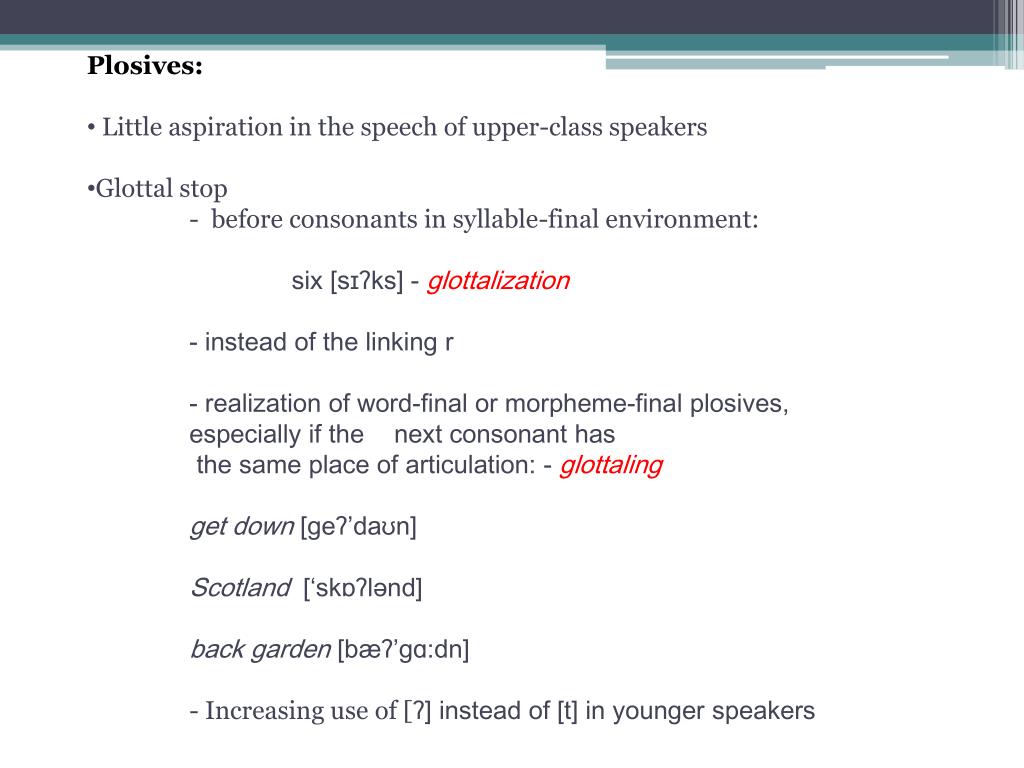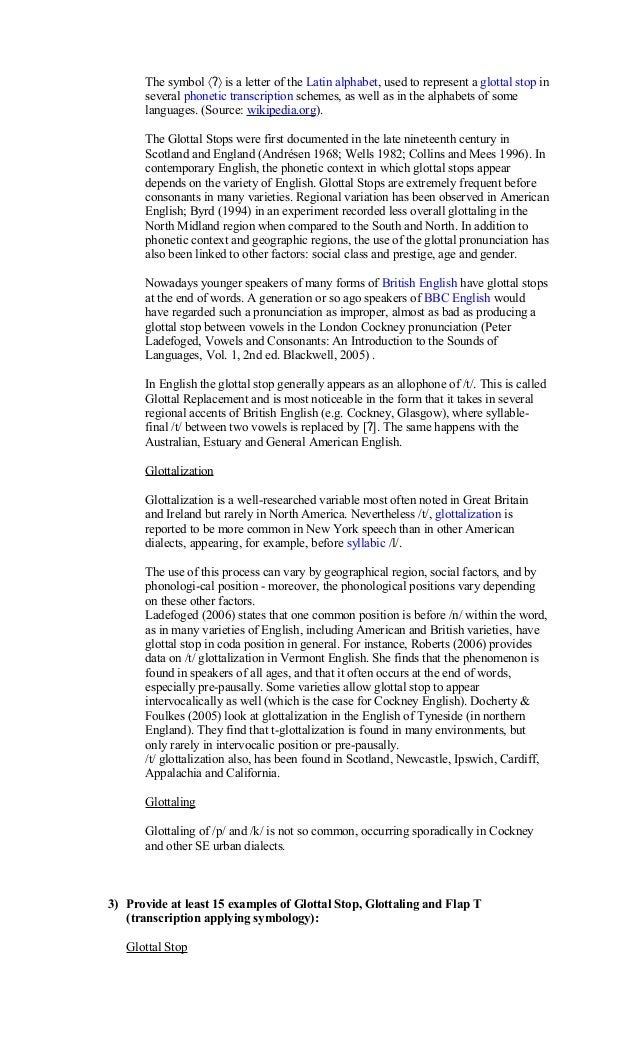T Glottalization
As others have said, t-glottalization is common in the U.S. Before syllabic N. Baby boomer, and I use a glottal stop in the first T of important, and in the T in Clinton. The /t/ is a regular, aspirated /t/ when it is the first sound of a word or a stressed syllable (or does not fit into patterns 2-4 below). This rule overrides all other /t/ allophone patterns. In the examples below, the /t/ is pronounced normally because the sound begins a stressed syllable.
NEW VIDEO: What is a glottal stop?
Do you know about glottalising? Ever heard of the glottal T? Do you know if and when you should use it? In this video, this is exactly what I’m going to help you with.
What is a glottal stop?
I’m making this video for a subscriber, so it’s worth leaving a comment as I could be making a video especially for you.
So, what is a glottal stop? A glottal stop is made when the vocal folds close completely and then, depending on whether it is followed by another syllable, they release apart suddenly, letting out a burst of sound. It is similar to when clearing your throat or coughing, except that it is slightly gentler.
Glottal Stop Symbol
In British English, you hear many speakers using it to replace a T sound, but they tend to do this in one of two situations:
End of a word
Firstly, at the end of a word, as in:
- that hat hot
Part of a weak syllable
Secondly, as part of the weak syllable. If you're not sure what I mean by weak syllable, here’s a link to another video that I made about syllables.
So in a word like 'water', the ‘ter’ is the weak syllable, and because the 't' is part of that syllable, some British English speakers would glottalise it, so 'water' becomes 'water'. It's the same for 'better' and 'letter'.
And in a word like potato the first ’t’ is part of the stressed syllable, so it would be pronounced as a 't', but the second ’t’ can be a glottal - 'potato'.
Should I use the glottal stop?
Now, it is neither correct or incorrect to use a glottal stop, because we have such a broad variation of accents in the UK, and they use it to varying degrees.
T Glottalization In American Accents
What is true, is that the more passionate or clear a speaker needs to be, the more likely they are to pronounce these words with ’t’ sounds, so ‘that’ becomes ‘that’, and ’better’ becomes ‘better’.
Do RP speakers use the glottal stop?
It is also true, that pronouncing a ’t’ in these positions is often associated with RP speakers and historically with the middle and middle-upper classes. Nowadays, glottalising is much more widespread, even among RP speakers, although they tend only to use it at the ends of words.
I can’t tell you what you should do. Personally I like pronouncing the ’t’ sounds in these positions, although I glottalise from time to time, especially in more relaxed circumstances.
So, I hope that answers the question about what is a glottal stop. Do you want to start working on your pronunciation? Click on any of the free training resources below to get you started:
Already got these?
Why don't you really step up and master your pronunciation of British English...


Liked this video?
Get a twice-weekly pronunciation lesson

EVERY WEDNESDAY and SUNDAY
straight to your inbox!
Your email is 100% safe with us.